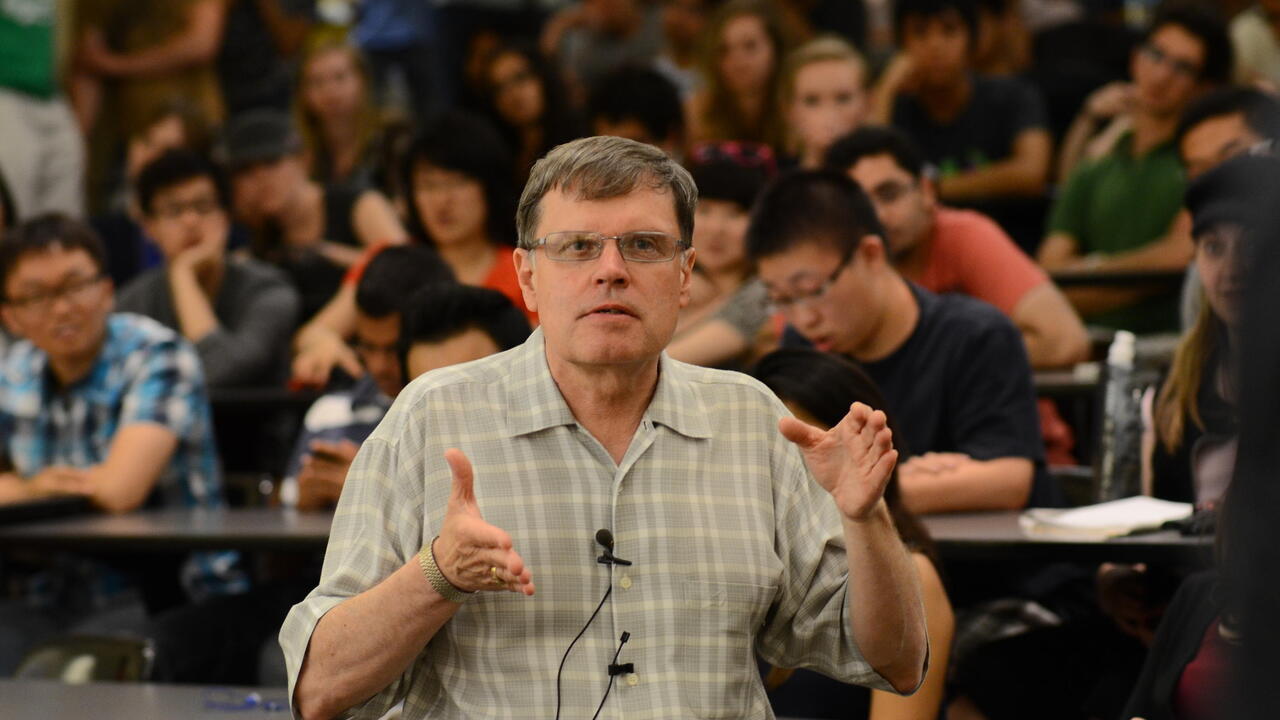Larry Smith loves a good problem — a fitting attitude for the director of the University of Waterloo’s new Problem Lab.
The Waterloo economics professor, who has taught 20 per cent of all engineering alumni, believes in the “simple principle” that before you go to fix something, you need to fully understand the problem.
Officially launched in February of this year, the Problem Lab is one of a few university-based facilities in the world — and the only one in Canada — with the exclusive mandate to find and understand important problems.
Long before the Problem Lab was conceived, Smith began providing guidance and feedback to Waterloo students and alumni on entrepreneurial ventures and many other topics. One of the best known recipients of his sage advice is Mike Lazaridis, co-founder of Research In Motion (RIM), now BlackBerry. Smith mentored Lazaridis while he was a Waterloo electrical engineering student in the early 1980s.
Seed funding for the Problem Lab was provided by Lazaridis and Doug Fregin, the other co-founder of RIM. The lab offers a wide range of activities across campus, including a problem pitch competition organized with the University’s Velocity program and designed to help students better understand an important commercial challenge.
Each year, Smith attends Waterloo Engineering’s Capstone Design symposia that take place at the end of March. With over 750 fourth-year engineering students participating in the multi-day event, he reads up on all the projects in advance so that he can visit ones with potential to be the next big thing.
Benefits of a kick-ass problem
Smith, the author of the 2017 book How to Have a Great Career: Find Your Passion, Achieve Your Goals and Love What You Do, emphasizes that students who choose a “kick-ass problem” to solve as their Capstone Design project will significantly increase their odds of either founding a successful startup or landing a job in which they’re likely to be promoted quickly.
By selecting a commercially attractive project, students are able to demonstrate to their employer that they’re just as interested in the commercial usefulness of things as they are in how they work.
“It says I’m more than just technical applied knowledge. It says I am strategic, I have an understanding of society and its marketplaces, and I am an applied problem solver,” he says.
If a “worthy” real-life project doesn’t work out, Smith wants it to fail fast so students can move on to one that is successful.
“You learn from failed experiments,” he says. “But we want to learn from well-conceived experiments.”
Related stories

Read more
From Waterloo undergrad to doctor and health-tech leader
How Doug Kavanagh’s software engineering degree laid the foundation for a thriving career in patient care

Read more
$7.5 million seed funding helps Upside Robotics plant the seeds for success
Upside Robotics secures new funding to accelerate the future of sustainable farming

Read more
Capstones, collaboration and community
Redefining capstone learning by bringing students, faculty and community partners together to tackle real-world challenges





